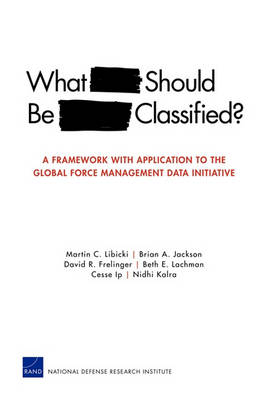For its operational planning and budget programming, the Department of Defense (DoD) needs frequent access to current, detailed data on authorized force structures for all the services. Having users aggregate this information themselves was difficult, time consuming, and error prone. Hence, DoD launched the Global Force Management Data Initiative (GFM DI). While most of the data from the GFM DI are unclassified, the fact that it facilitates data aggregation raised concerns about what a potential adversary might be able to do with access to it and whether it would be better to classify such data and store it exclusively on the secure network. The authors address this question by looking at why material should or should not be classified, concluding that classification is warranted only (1) if it reduces the amount of information available to adversaries, (2) if the information kept from adversaries would tell them something they did not know, (3) if they could make better decisions based on this information, and (4) if such decisions would harm the United States. Using this framework, the authors balance the risks GFM DI poses against the costs to DoD of not having this information readily available to its own analysts. The authors conclude that overall classification is not necessary but suggest that some limited subsets may warrant additional protection.
- ISBN10 083305001X
- ISBN13 9780833050014
- Publish Date 16 April 2011
- Publish Status Active
- Publish Country US
- Imprint RAND
- Format Paperback (US Trade)
- Pages 110
- Language English
